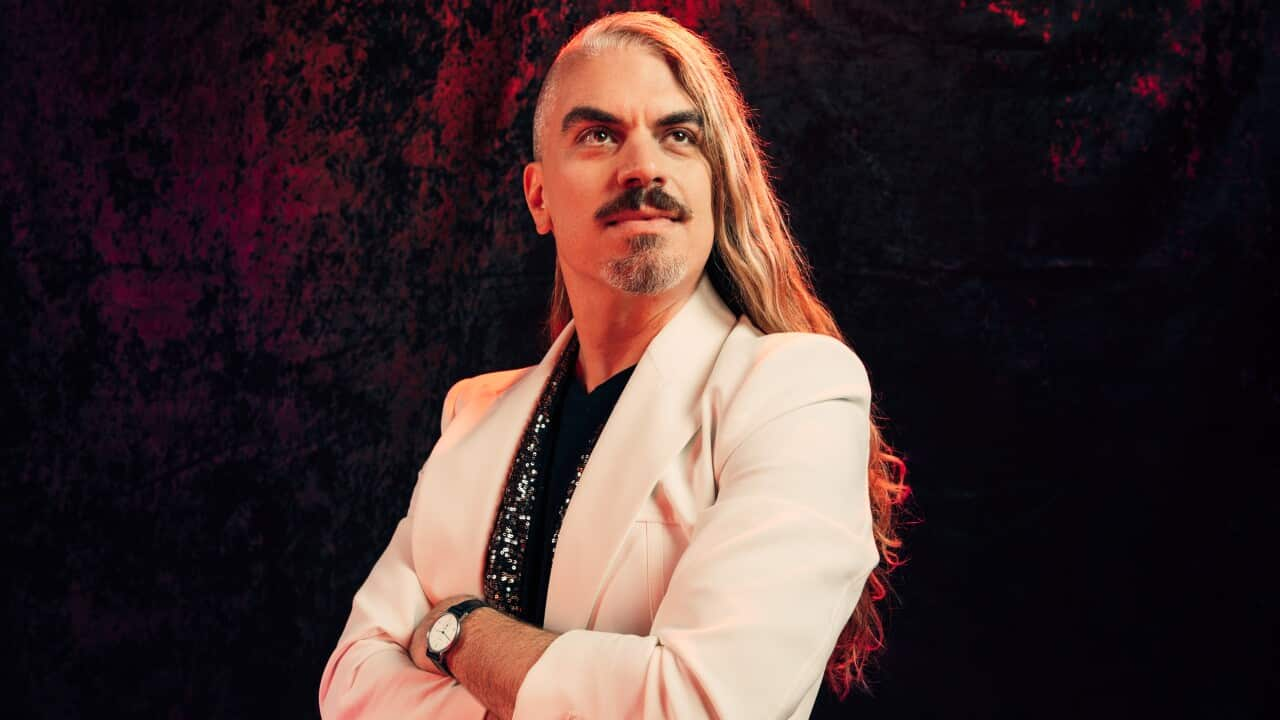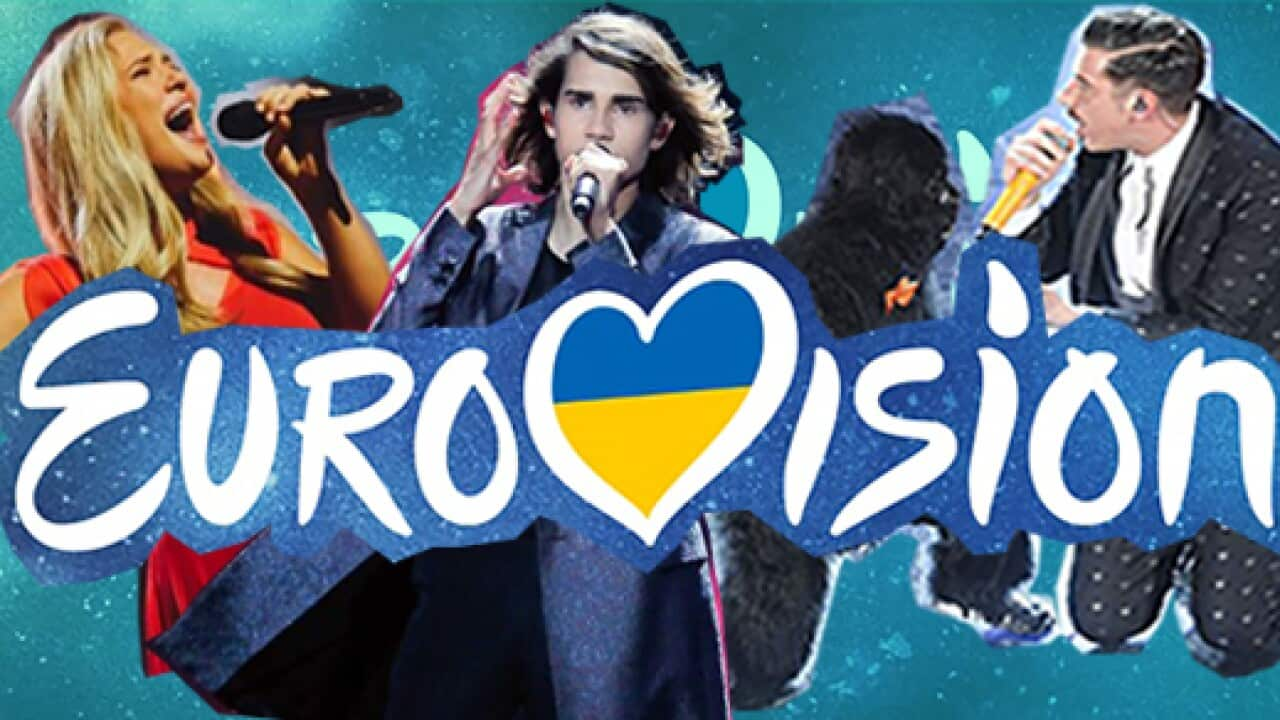Key points
- A day after the Eurovision Song Contest final, Türkiye will hold its presidential and parliamentary elections.
- Opposition candidate Kemal Kılıçdaroğlu is in favour of Türkiye’s participation in Eurovision, while Recep Erdoğan has long opposed it.
- Türkiye won Eurovision in 2003 with the song ‘Every Way That I Can,’ but hasn’t participated since 2013.
As Türkiye enters the final stretch of its election campaign, millions of voters are pondering a country not led by President Recep Tayyip Erdoğan, who has been in power for 21 years.
This year, he faces who many pundits believe is his toughest test for the top job in Kemal Kılıçdaroğlu.
Apart from more profound election issues such as religious polarisation, the economy, sky-high inflation and relations with NATO allies, another issue significant for a not-so-insignificant part of the population is: will Türkiye return to the Eurovision Song Contest?
Türkiye was a regular at the contest from 1975 until 2012, until the state-owned and government-controlled Turkish Radio and Television (TRT) Corporation decided to cease broadcasting it due to the “unfair points system” of the contest.
EUROVISION 2023

Australia's Eurovision entrant is also an immigration lawyer
Ivan Raykoff, associate professor of music at New York’s New School and co-author of the book A Song for Europe: Popular Music and Politics in the Eurovision Song Contest, believes the decision to pull out of the contest was a “bureaucratic excuse” and that the real reason was “deeper, more complicated and more fraught socially and historically”.
Up until 2013, Eurovision was seen as an arena where Turkish musicians tested their pop music mettle.
It also offered the Turkish population a barometer of their 'Europeanness'.
While it may be too late for Türkiye to participate in Eurovision this year, some hope for a return in 2024.
Türkiye will go to the polls to elect a new parliament and president on Sunday, a day after a new Eurovision winner is crowned.
Mr Kilicdaroğlu has said in the past that Türkiye’s decision to withdraw from Eurovision was a "mistake”.
Furthermore, his campaign videos leading up to this election have featured the country’s Eurovision victory in 2003 with Sertap Erener’s hit song Every Way That I Can.
Portraying himself as more of a cosmopolitan and antithetic opponent for Mr Erdoğan, Mr Kilicdaoğlu has promised to reverse a number of policies if he wins on 14 May.

President Recep Tayyip Erdoğan has heightened his anti_LGBTIQ+ rhetoric and opposes his country's return to Eurovision. Credit: Stringer/Getty Images
In a recent rally in Istanbul, Mr Erdoğan said, “we’re not pro-LGBT,” before labelling each opposition party as pro-LBGTIQ+.
"We are against LGBT," he said.
We, as an alliance, are against LGBT. Because, for us, family is holy.President Recep Tayyip Erdoğan
He called on the crowd to “bury these pro-LGBT in the ballot box”.
Some believe Türkiye’s no-show at Eurovision may come to an end if Mr Erdoğan loses.
In 2014, there were comments by leading members of the Erdoğan government directed towards Austrian artist Conchita Wurst’s participation in the contest, citing the drag queen as an example of why the country should not participate.
The performer went on to win the contest that year, and Wurst joined protests in Cologne against Türkiye’s president when he visited Germany that year.

Austria's Conchita Wurst won the 2014 Eurovision song contest with 'Rise Like A Phoenix', sparking anti-gay sentiment. (AAP) Source: SBS
“The main theme that academic circles have seen is how Eurovision, the song contest, represents a model of cosmopolitan belonging,” he said.
While nations competed against each other, the mood is one of coming together, with anyone waving any flag they wanted, he explained.
The attitude of openness to others, openness to fluid boundaries and mixing, that’s threatening for many people and also governments.Associate Professor of Music at New York’s New School Ivan Raykoff
“Gender fluidity, innuendo, drag queens like Wurst can be threatening for rigid and moralistic regimes.
“Russian leaders commented on it before being kicked out after the invasion of Ukraine. Similarly, Hungary has stopped participating,” Mr Raykoff explained.
Türkiye’s Eurovision debut in 1975 with Semiha Yanki’s Seninle Bir Dakika (A Minute With You) was a striking beginning.
The song continues to stir millions of Turks with its lyrics, including 'love lasts a lifetime' and 'lovemaking just a minute'.
The song failed to curry favour with voters, receiving "three points, trois points" from Monaco and nothing from the rest of the continent, therefore placing the country in last place.
Nevertheless, these results did not faze the population.
Some members of the Turkish-Australian community still fondly recall their home country’s participation in Eurovision.
Mehtap Kilincaslan, a 57-year-old resident of Wollongong, still remembers how the whole family sat in front of the television for Eurovision, while the "streets were empty".
It was like a sports match of the national team: streets would clear up and families would make their plans around Eurovision.Mehtap Kilincarslan
Mrs Kilincarslan remembers 1980 in particular when Ajda Pekkan’s Petrol competed against the best that Europe could offer.
Ms Pekkan earned Türkiye’s first 12-point score, which came from Morocco.
The African country would never again compete at Eurovision.
Mrs Kilincaslan admits the song that year “was not so good” but still remembers the excitement it generated.

A portrait of Turkish singer Ajda Pekkan soon after performing at the Eurovision Song Contest in 1980, wearing a traditional dress and bangles. Credit: Keystone/Getty Images
The rest pretty much crashed like a meteor shower.
But that didn’t stop tens of millions from tuning in to the only channel in the country to watch the show.
The 1990s were more of the same, like meteors crashing into the earth’s atmosphere, apart from Sebnem Paker’s Dinle (Listen) coming third in 1997, placing a simple pop music piece with some Arabic themes.
After a long dry spell came sweet success.

Turkish artist Sertap Erener's winning performance at the 48th Eurovision Song Contest in 2003 in Riga, Latvia. Credit: Getty Images
Only months after Mr Erdoğan took over as the head of government in 2003, Erener’s Every Way That I Can claimed victory at the contest.
For Mrs Kilincarslan’s son Ege and his friends, competing at Eurovision is a non-issue.
When asked about this year’s contest, he said he had heard nothing about the competition, or Australia’s entrant, blaming the lack of wider promotion.
He said he grew up listening to songs of Türkiye’s Eurovision past, like Every Way That I Can, adding that he couldn’t really feel the same Eurovision passion in Australia.
Until Türkiye stopped participating in 2012, there were six top-ten finishes including two fourth positions and one second.
And every year since then, TRT has cited the reintroduction of jury voting in 2009 and the resulting “unfair voting” as the reasons behind the country not participating in a contest.
The voting system has changed several times since then and public voting was brought back but Türkiye’s approach didn’t change.
Necdet Cimenli, an 81-year-old member of Sydney’s Turkish community, believes it was a "huge mistake" to stop participating in Eurovision.
The contest was a huge opportunity to promote the country.Necdet Cimenli from Sydney
In 2003, he remembers inviting his friends and lighting a bonfire to watch Erener win Eurovision.
“It was such a proud moment,” he recalls on the 20th anniversary of Türkiye’s win.
Eurovision is organised by the and TRT, as a member of this union, is the only body that exercises power over whether Türkiye will participate in the contest or not.
Often under the strict influence of the government of the day, TRT’s decision to not send an entry is seen as a reflection of the government’s attitude towards Eurovision.
Over the years, there have been signals emanating from TRT that could be construed as though Türkiye intends to reverse its Eurovision boycott.
TRT’s general manager İbrahim Eren said in June 2021 said they had begun work on re-entering the contest and that he was hopeful that Türkiye would soon be sending a participant.
A fortnight later, the organisation's general manager Mehmet Zahid Sobaci would officially close the door on a new chapter in Türkiye’s Eurovision story even before it turned a page.

Turkish opposition presidential candidate Kemal Kılıçdaroğlu (left) and President Recep Tayyip Erdoğan. Credit: www.akparti.org.tr & www.chp.org.tr
For Mrs Kilincaslan, an opposition win means a resumption of Türkiye’s journey at the contest.
Mr Raykoff finds the current state of "polarisation" in Türkiye akin to the US presidential election race in 2020.
“The country is split into two halves: those who are afraid and those who are open.
“Eurovision is where the battle lines are drawn, and I hope it appeals at least to half the nation."

Turkish music duo Manga perform 'We Could Be The Same' in 2010 in Baerum, near Oslo during a rehearsal for the Eurovision Song Contest. Credit: NIGEL TREBLIN/DDP/AFP via Getty Images


